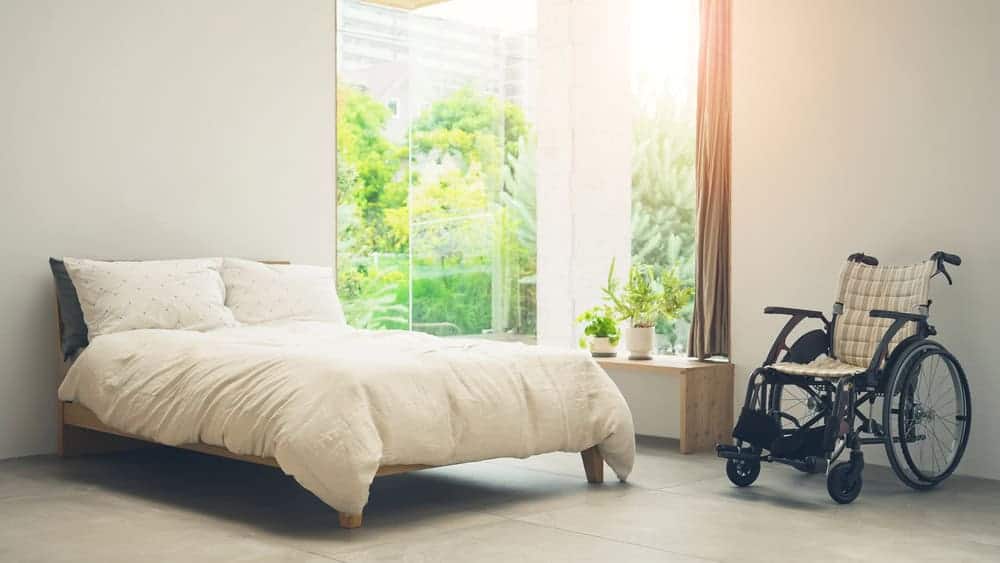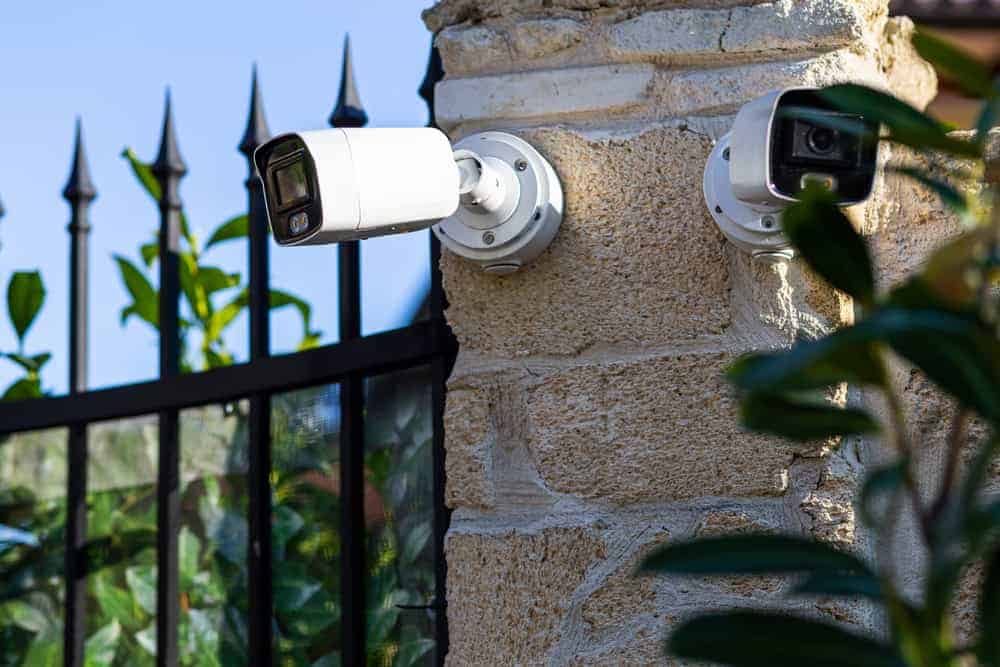Have you ever wondered about your loved ones’ care, especially when they are struggling with memory impairments? You may wonder where to start and whether you are well-equipped to care for them.
Realizing that your loved one needs more than you can provide can be a bitter pill to swallow. The thought of bringing in a professional caregiver may feel like giving up.
Seeking professional help should not feel like a failure, but rather the best route to ensure your loved one’s well-being. Providing care for a senior loved one with memory loss may be more than your expert. A compassionate memory care provider will ensure your loved one is cared for like family.
Keep reading to learn more about memory care, and how to choose the right care provider for your beloved senior. will require more of you, sometimes more than you expect.

Overview of Memory Care Services and Facilities
When you decide to seek memory care services for your aging loved one, there are several factors you will have to consider. Key among these are the services you want for your loved one and the availability of these facilities near you. You will need a facility that feels like home. A place where your aging loved one will be guaranteed safety and personal care and where you will know their well-being is being taken care of.
Seeking memory care services for your loved one ensures that they retain their dignity and independence even as they struggle with memory loss. With easy access to good memory care delivered by caregivers and other professionals trained explicitly in emphatic caregiving, you will watch your loved one thrive.
What is Memory Care, and Why is it Crucial for Seniors?
Memory care is a specialized care for seniors living with memory loss. It’s crucial for seniors with dementia or Alzheimer’s as it provides them with a safe environment to thrive. A senior will have dignity and independence that would otherwise be impossible.
Most health conditions requiring memory care are usually degenerative. This means that a senior will experience cognitive decline with time. With the progression of the disease, your loved one will require a higher level of care to lead their life comfortably.
The best part about memory care for seniors is that it focuses on the patient rather than their illness. It involves a holistic approach to care that caters to even family members.
If, as a caregiver, you realize that you are struggling to provide the necessary care for one reason or another, then your loved one will feel this struggle.
Studies show that mortality and morbidity rate increases in seniors usually occur when they don’t have the necessary support from their caregivers. To reduce this risk, consider seeking memory care services if you or your loved one’s caregiver is struggling to cope.
Types of Memory Care Facilities Available
When it comes to the type of memory care community available for your senior loved one, what matters most is finding the right fit for them—a place where they will be loved, feel safe, and nurtured.
Many memory care facilities are available, and it may be challenging and time-consuming to find one that is ideal for your loved one.
The following are the types of memory care communities. Knowing the types of memory care homes will help you choose the one that is right for your loved one.
Home Care
In the early to middle stages of dementia, your loved one may choose to stay at home and receive care from the comfort of their home. However, you will need to monitor the condition of their memory deterioration and plan accordingly.
As a family, you can help a loved one cope with memory loss by creating and maintaining a tailor-made care plan that addresses their needs at any given time.
In-Home Care
For in-home care, your loved one will remain in the comfort of their home. However, they will have the assistance of a memory care facility, where the facility sends one of their caregivers to your loved one’s home. This caregiver will provide essential services like:
- Round-the-clock assistance
- Light housekeeping
- Personal care
- Meal preparations
- Shopping
- Socialization
- Supervision
- Licensed nursing services (insulin injections, physical therapy, medical administration)
- Respite care.
This memory care will, in most cases, allow your loved one to maintain their independence and dignity. It is also a good choice as you will have peace of mind knowing your loved one is comfortable in their home and they have someone watching over them.
An in-home caregiver usually visits your loved one’s home based on the initial agreement. You can have them come daily or a few times a week.

Live-In Care
You may also have a live-in caregiver who will care for your loved one round the clock. Such an arrangement allows seniors to remain in the comfort of their homes. Sometimes, you can have a live-in caregiver for 4-5 days and then take over.
The role of a live-in caregiver includes;
- Personal assistance
- Light housekeeping
- Meal prepping
- Companionship
- Running errands
Residential Care
This memory care takes place away from home in a community environment. You can consider this type of care when you realize your loved one requires more care than you can provide at home, or if you require long-term care.
Residential memory care facilities are designed to allow emergency medical care and supervision, round-the-clock medical care, and a safe environment for seniors with memory loss issues.
There are several types of residential facilities providing memory care, they include the following:
Assisted Living
This type of residential care will be the best option when seniors need help with meals, emergency care, and part-time medical care assistance. Your loved one can have an apartment-style or community living space in these homes. If your loved one requires help performing activities of daily living like bathing, dressing, and toileting, they can access those services at these homes.

Nursing Home Care
A nursing home is an ideal place for your loved one when they require round-the-clock and long-term medical care. Your loved one will access these services in one place and receive different types of care within the exact location.
Continuum of Care
This memory care type is designed to meet the needs of a senior living with dementia. The kind of care evolves as a senior’s needs change. Your loved one may move into a continuum of care when they require part-time care, and as their needs change to full-time or round-the-clock care, you don’t have to worry about changing their care providers. Your loved one will access the type of memory care required at one given time at the exact location without the upheaval of moving from one place to another.
Respite Care
If you have a professional caregiver or are responsible for caring for your loved one, you will need some time off to take care of your affairs or unwind. Someone else will need to step in and care for your loved one while you are away. The person who comes to relieve is a professional respite caregiver trained to take excellent care of your loved one. When caring for your loved one, they perform some of the following duties:
- Drive your loved ones to their appointments
- Light housekeeping
- Personal care
- Provide companionship
- Administer medications
Memory Care Services Offered

Some of the memory care services offered by providers include:
- Cleaning
- Meal preparation
- Bathing
- Dressing
- Toileting
- Grooming
- Laundry
- Light housekeeping
- Nursing services
- counseling
- Transportation to and from their appointments
- Fitness programs
- Group reading
- Behavioral management
- Occupational therapy
- Physical therapy
- Memory stimulating and group activities
- Round-the-clock supervision
- Emotional support
- Hands-on personal care
- Memory loss-specific programming
- Attention to the nutrition and dietary needs of the residents
- Therapeutic care options
- 24/7 security and safety measurements
- Family support
- Recreational activities.
Additionally, memory care facilities have 24/7 security measures that ensure seniors enjoy their freedom of movement and discourage unsafe wandering.
Cost of Memory Care
Well, as with everything in life, you will have to factor in the cost of memory care and find out if you can afford it before committing to your loved one.

As you start researching memory care facilities, you will realize that memory care cost varies widely. Some of the factors influencing the price of memory care for seniors are:
Location
The location of the memory care facility always affects its cost. This means that when you choose a facility in a densely populated area, the price will be high, as the cost of living in these areas is usually high. On the other hand, a memory care facility located in a rural setting will be more affordable, as the cost of living in these areas is low.
The Level of Care Your Loved One Needs
The cost of memory care will also depend on the level of assistance and care your loved one requires. As their memory impairment degenerates, the price may increase as the level of care also increases.
Services and Amenities offered
Although higher charges don’t necessarily translate to excellent or better care for your aging parent, the quality and range of services and amenities will affect its cost. You will realize that memory care facilities offering a wide range of extensive activities, therapy options, luxurious amenities, specialized programs, and unique personal care plans may charge you more than those offering a basic package.
Accommodation preferences
Most memory care facilities have several accommodation options, and you must choose an ideal one for your loved one. Some of the available accommodation options include:
- Private rooms
- Semi-private rooms
- Shared rooms.
Each accommodation has a different price tag, with private rooms topping the list.

Contract terms
The terms of a senior’s contract with the memory care facility will also dictate its cost. The services’ duration and flexibility will ensure you pay a higher cost. Some memory care homes may provide monthly packages. In contrast, others offer a longer duration, affecting the cost of their services.
Security features
Memory care facilities offer enhanced security measures to help discourage most seniors from wandering off the premises. The additional security measures ensure the residents’ safety, and you will find most homes equipped with alarm systems, smart cameras, and personalized trackers. All these security features will contribute to a higher rate regarding the cost of care.
How to Pay for Memory Care
You can pay for memory care through one of the following ways:
- Long-term care insurance
- Personal savings
- Life insurance
- Tax credits
- Bridge loans
- Medicare (for seniors above 65)
- Veterans benefits
- Medicaid
- Financial aid from family and friends
- Private insurance for persons under 65 under group healthcare plan 5.

Choosing the Right Memory Care Facility
When it comes to choosing the suitable memory care facility for your loved one, the following pointers will help you make an informed decision:
Staff and Caregiver Qualifications
Ask about the caregivers’ training and qualifications, especially when caring for persons with memory impairments. Check if a nurse is available on site and if the facility offers occupational or physical therapy. Additionally, ask if the facility consults with specialists like psychiatrists and psychologists.
Cleanliness
It’s crucial to ensure the facility a senior is moving into is clean and safe. It’s okay to inquire about the facility’s safety and hygiene measures.

Care Services and Offerings
It is essential to pay close attention when visiting a memory care facility and find out how they handle their residents’ medical needs. Does the facility have easy access to medical support in an emergency?
During this visit, inquire about their level of care and what happens if your loved one requires advanced care with time. Does it mean they can continue at the same facility or move to a different memory care facility?
Safe and Secure Environment
Since most seniors with memory loss issues are prone to wander, you should seek a memory care home that prioritizes the safety and security of its residents. You want your loved one to have the freedom to move about in a safe and secure environment.
Most memory care homes for seniors ensure their designs have Alzheimer’s and dementia residents in mind. You will find exits outside the facility fitted with security alarms or locked unless they lead to the patios or outside gardens.
Kindly look for the following features in a memory care home to ensure your loved one moves into a safe and secure environment:
- Round-the-clock alert systems
- 24/7 supervision
- Heat, fire, and smoke detection system
- Handrails
- Access controls
- Emergency response systems
- Soundproof walls
- Security system
- Wheelchair ramps

Memory Care Staff and Care Planning
Choosing a place to entrust with memory care for your loved one can be tricky. You will have several factors to consider. Knowing their staff and caregivers will do an excellent job with your loved one will help ease your concerns.
The answers to the following questions should help you find an ideal memory care home for your loved one.
What Do You Expect in a Memory Care Home with Skilled Staff and Caregivers?
If you find the memory care home for seniors prioritizing and using a person-centered approach in their care. To know if they use this approach, check the home’s design and the staff’s attitude towards the seniors. Visiting the memory care home without a prior agreement will allow you to see the interactions between caregivers and seniors in real life.
The importance of skilled caregivers caring for your loved one is that they help improve the quality of a senior’s life, keep them safe, and help manage their symptoms. You want someone who knows what they are doing. An ideal memory care home for seniors should offer a structured and safe environment where your loved one will thrive.

What Key Skills Should You Look Out for in Memory Care Staff and Caregivers?
The staff and caregivers caring for seniors with memory impairments should be well-equipped to deal with residents with dementia or Alzheimer’s. They will need to be prepared to take a holistic approach in their care and take training in memory care topics like:
- Preventing falls
- How to help seniors with mobility issues
- Basic personal safety measurements
- Basic hygiene practices
- Infection prevention
- Personal care
- Client confidentiality
- Effective communication skills
- Diffusing escalating stressors and challenging behaviors in seniors
- First aid
- Emergency procedures
- Ensure the residents eat and participate in scheduled activities
- Detecting and preventing abuse in seniors.
Is There An Ideal Time To Move A Senior Into A Memory Care Home?
The decision to move a loved one to a memory care facility may be a difficult one. This could be due to the perceived stereotype surrounding memory care homes.
If you are waiting for the “right time” to have your loved one move into a memory care home, this may never happen, as there is no right time to make this move. It depends on several factors including the stage of their memory loss, if you can provide care, the financial commitment, and finding the right provider.
However, visiting a memory care home and interacting with the staff and caregivers might help you decide, as they will give you an insight into memory care and help address any unease.

Conclusion
Caring for a loved one with memory care needs might require a lot more than you expect. Memory loss significantly affects your loved one’s well-being. Your aging parent or spouse may start struggling with activities of daily living like toileting, eating, and dressing, among others.
Watching your loved one suffer from the effects of memory impairments can be distressing for you and your family. You will worry about their safety when you are not around, personal care, medication management, and overall well-being. Memory care homes for seniors can provide much-needed peace of mind and ensure your loved one leads a relatively everyday life.
Another key benefit of having your loved one move into a memory care home is knowing they will enjoy the exercise of the staff and caregivers in these homes. Each memory care home ensures its staff has specialized training and knows how to work with residents with memory loss. The unique understanding of seniors with Alzheimer’s disease, dementia, and other memory impairments makes it possible to provide the necessary care for seniors under their care.
Proper memory care services allow your loved one to live a happy, meaningful life in a safe and secure environment. If you believe memory care is the best option for your loved one, please do not hesitate to contact us for more information about our memory care service. We can’t wait to fill your loved one’s life with joy, and peace.




